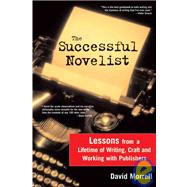The Importance of Jumping Quickly at Major Opportunity
One of the major pieces of advice I can give beginning freelance writers is the importance of jumping to take advantage of an opportunity when one arrives. Sometimes you see a potential to make a lot of money, or potential to really take advantage of how a writing website is doing in order to build up a great residual income for yourself. If there's one thing I've learned from several years writing, it's that diversification is important but when you see a clear opportunity, you need to put the majority of your efforts where you're going to get the majority of returns. For other 4 Hour Workweek fans out there, this is referred to as the Pareto Principle or 80/20 Principle. Spreading yourself out in the name of diversity doesn't make sense if you have one clear winner. Invest most of your energy in the open writing opportunity, and come back to diversify later.So what do I mean by this? I'm going to give you two obvious examples from my own time writing online, and the reason I believe they both work is that even though both opportunities have more or less closed, meaning they wouldn't pay long term now the way they used to, if I had taken heavier action early on in both situations, I'd be far better off financially not only now, but heading into the future as well. Sometimes it's easy to say "well it's a good thing I didn't invest too much in that because now they're gone" - but that might be taking the easy way out and preventing you from learning from a missed opportunity. And if you want to make a living freelance writing online, you definitely need to learn from mistakes and learn to adapt and get better along the way.
So the first example: eHow. I wrote for eHow's now defunct writer's compensation program when I was just getting started with online writing, and it did very well for me. With around 150 articles I made about $160 to $190 a month every month, with the majority of that income coming from the last 30 articles I wrote. The reason was that when the original version of the 4HWW came out I listened to the audio book, did the 80/20 looking at which articles and topics were making money for me on eHow, and then my last 30 were only on those topics. All of them made at least a couple bucks a month, while some of my highest income articles came from this batch. In fact, I would say those last 30 averaged $4 a month each with some higher and some lower, as always.
This might not sound like much, but based on the subject matter that was doing good for me, I had a list of over 600 more topics which based on my research would probably have evened out to the same $4 an article per month rate. But I was also writing for Squidoo and for HubPages and for Associated Content and for my former employers and on Blogger blogs and building my own sites and pulling myself in a thousand other directions. Then the WCP closed.
Between when I had the article list and when the WCP closed was three to four months. In that time, I could have easily completed all 600 articles which not only would have led to several thousand a month in passive income for another year or two, but when Demand Studios decided to buy out articles, the buy out would have been worth virtually a year's salary as opposed to the almost one month's income my buyout was (I can't disclose actual amounts due to the confidentiality agreement). One month is nice...but imagine what I could do if I was holding a payment equivalent to 10 months or a full year? I could outsource for entire mega-sites, pay off a lot of outstanding debt, and work on anything I felt like for several months knowing all my bills were taken care of. Or I could even buy several aged sites already earning passive income and continue to build on them. The point is that instead of staying spread out, had I taken those three months to just "kill it" on the eHow articles not only would I have made far more passive income the past couple years, but I'd be setting myself up for an early retirement right now investing the severance payment.
That's one example where I should have really busted my back to completely finish off that list and to get up to a decent income as quickly as possible - then I could have spent a lot more time diversifying when I didn't have to worry about bills or anything else on a month by month basis. By delaying, I missed a golden opportunity which turned out to be two (when including the buy out).
Then there's HubPages. While my last blog post on Hubpages being finished might have been a touch premature...although I'm still not convinced it isn't...there was a time not so long ago when it took very little work to get your hubs to rank ridiculously high for any decently researched keyword. So what was my missed opportunity here?
Once again it was seeing the power they had, and not focusing enough energy on HubPages while they were extremely profitable. While the Panda slap would obviously still hammer me, there's still a good reason to see this as a missed opportunity. I was making about $350 a month from one HubPages account and $250 a month from another account. $600 a month isn't bad, but I was averaging only about 7-10 hubs a month with my attention split in multiple directions all at once. The $600 a month came from 200 hubs, but once again the majority of the income came from 50 hubs, many of which were some of my newest at that point. Had I focused first and foremost on hubs, there's no reason I couldn't have produced 100 a month for a few months. In three to six months, that would be near a full time income (on the low end).
While Panda would smack that number down like it did with the hubs I had, there's a very good reason I still should have put more work right into the HubPages when they were ranking so easily: because even at six months or one year earning a full time passive income I could spend all my time on diversifying, on building my own sites, or investing all my actual freelance writing income back into my own business. In other words, the gain I could have made in those months would have really pushed forward my business and my passive income even before the Panda smackdown.
Add in the new Hub Ad program, and the bounceback with 500 more hubs than I currently have and even now I would still be in better shape.
Don't get me wrong, I'm doing fine when it comes to building my residual income and my recovery from Panda is going great. In addition, I'm making more freelancing than ever which definitely makes things easier. But the point remains: I could already by at my goals, be sitting on a year's pay from a buy out, and still be a couple hundred a month more ahead right now had I taken advantage of those two online opportunities while they were there for me.
Now there is one extremely important point to make when talking about putting most of your energy into one source: I wouldn't just stop and rest on my laurels. I would take advantage of the situation to diversify AFTER getting my full time income, then with my freelance income I would invest in my business to diversify FURTHER. I'm just saying instead of spreading yourself too thin and spread out early on, get your money and your income and then with your renewed freedom and extra income you diversify.
The point is, when you're writing for multiple sites, or maybe you're setting up multiple sites for yourself, look for that opportunity. When it shows itself, don't be afraid to take advantage of it. Work your butt off, race to your monthly passive income goals as quickly as possible, and don't worry about diversifying until you get to your goals. While some people might find this controversial, the more you think about it, the more it makes sense. Diversifying is what you do to protect income, but until you have a major income to protect, what's the point?
Right now for me this means taking advantage of what The Keyword Academy has to offer, building my own sites while they are ranking the easiest compared to Web 2.0 properties, and jumping on the BMR train while it's still showing results. If there's one thing the past few years of online freelance writing has taught me, it's to take advantage of every opportunity!










